The first time I saw a therapist, I’d been married for about five years and had two little boys under age two. I was feeling a bit lost, both in my marriage and my life in general as I made the huge transition to raising a family.
I remember packing up to leave a session and mentioning in passing to my therapist that I thought I was the kind of person who would probably always need a therapist.
He said that his hope was to get me feeling like I didn’t need him, and I appreciate that he wanted to help me process my thoughts and give me tools that I could use on my own.
After a while, I DID feel like I didn’t need him, which was great.
And then—a few years later, after we’d had another kid and moved to a new city—I found myself wanting to talk to someone again.
In the years since, I’ve worked with two more therapists and an amazing psychiatrist, and I’m incredibly grateful for the impact these people have had on my mental health and my life.
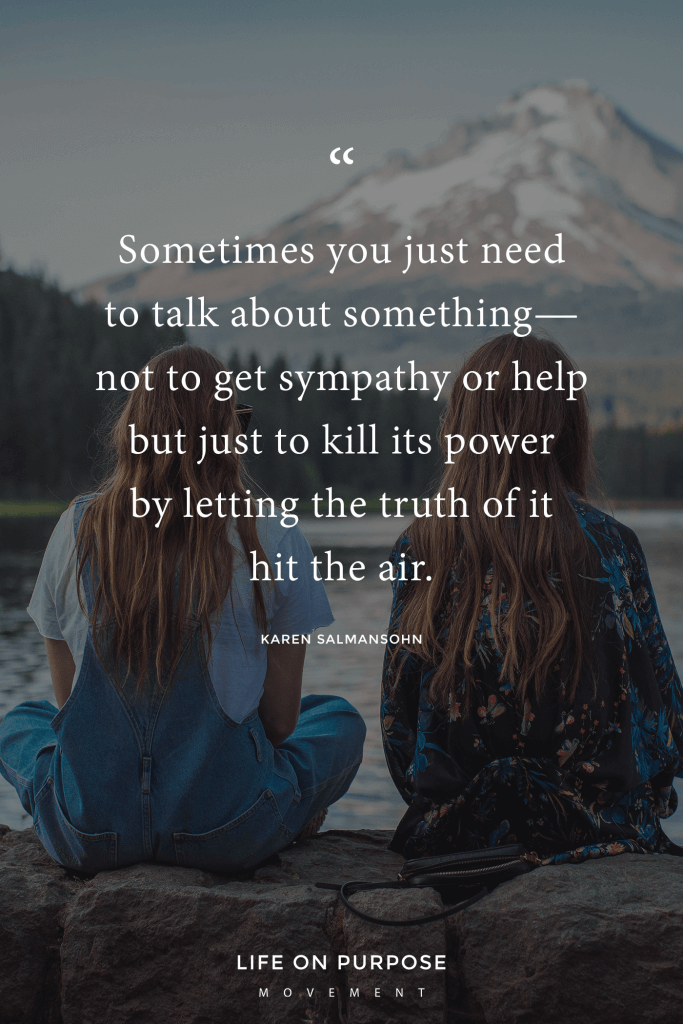
Your Mental Health is JUST as Important as Your Physical Health
To me, having the support of a mental health professional in your life is like having the support of an OBGYN or a general practice doctor. Your mental health is JUST as important as your physical health, and in truth, your mental and physical health are deeply intertwined.
Whether you’re new to therapy or a recurring user, like me, I hope these three simple tips help you get the most out of your counseling experience.
3 Things You Can Do to Get the Most Out of Therapy
1. A regular practice of free writing
Much of the time, our thoughts are swirling around in our heads to the point where it’s hard to make real sense of them. Writing freely always helps me find common threads and distill the issues I want to bring to therapy.
If you happen to be into the Enneagram (a personality framework with nine types), I’m an Enneagram 2—often called The Helper. Enneagram twos tend to devote a LOT of their thoughts to relationships and self-improvement, so for me, finding things to talk about in therapy is NOT hard. (I spend way too much time in my own head!)
My husband, on the other hand, is a 7 on the Enneagram, often called The Enthusiast or The Optimist. Sevens tend to resist thinking about difficult feelings—they’d rather go on an adventure and forget about it.
I always joke that if you were to ask me what I was thinking about at any given moment, it’d probably be something that someone I know recently said and what it meant. Whereas if you ask my husband, he’d probably answer with something concrete—like our family finances, a technical aspect of his work, or the next mountain biking trip he’s planning.
If you happen to be more like my husband, where thinking about feelings and relationships isn’t your go-to, or if you tend to push your feelings down rather than deal with them, then free writing before sessions may be especially effective for you.
It’ll open you up to what you’re feeling and help you identify what you want to work on.
On the other hand, if you’re more like me and you DO spend quite a bit of time in your own head, free writing or journaling will help you narrow down what feels most important at the moment. It’ll help you find clarity.
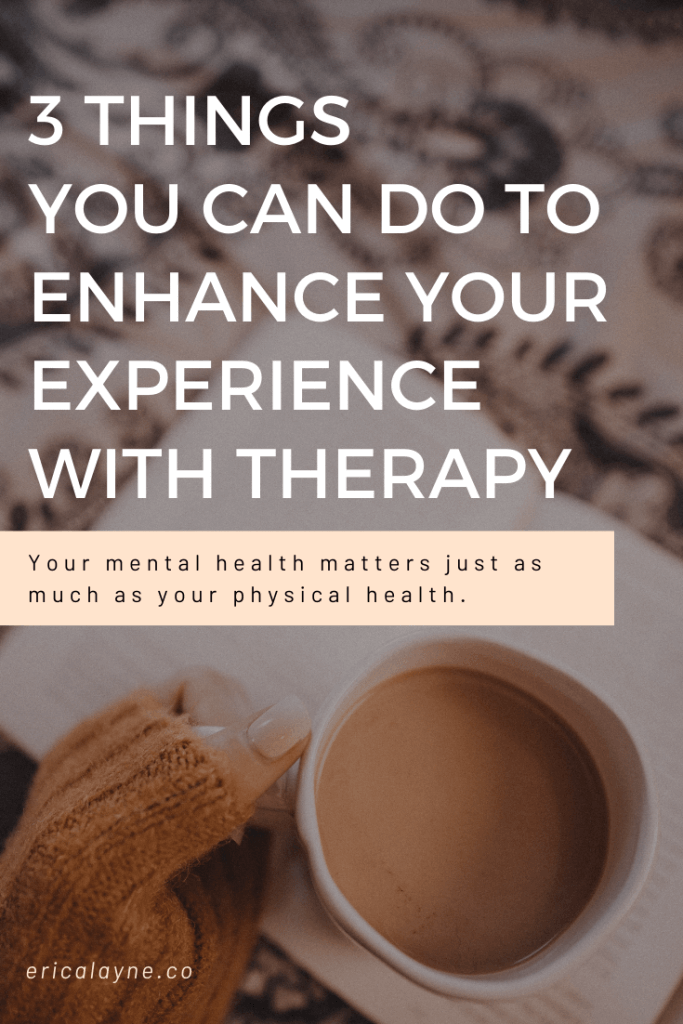
2. Take notes! Record both things you’ve learned from sessions AND things you want to talk about in upcoming sessions
On my iphone, I have a NOTE (using the Notes app) that I titled Therapy Thoughts. After each session, I try to jot down a few takeaways. This helps me get so much more mileage out of the things I learn or mini-epiphanies I have along the way.
Because I can promise you, if something feels revolutionary in therapy—like you’d never forget it—chances are good that you really WILL forget it, unless you write it down.
I also use this same Note to record things I want to talk about in future sessions. Sometimes they’re things I gleaned from my free writing, and sometimes they’re things that just pop up in day-to-day life. If I can grab my phone, pull up my note, and jot it down, I can bring it up with my therapist in the next session.
This prevents that “I have a session coming up but I don’t know what to talk about” feeling and helps you confront the things you want and need to confront!
By the way, if you’re not a note taker, you could also use voice memos for this!
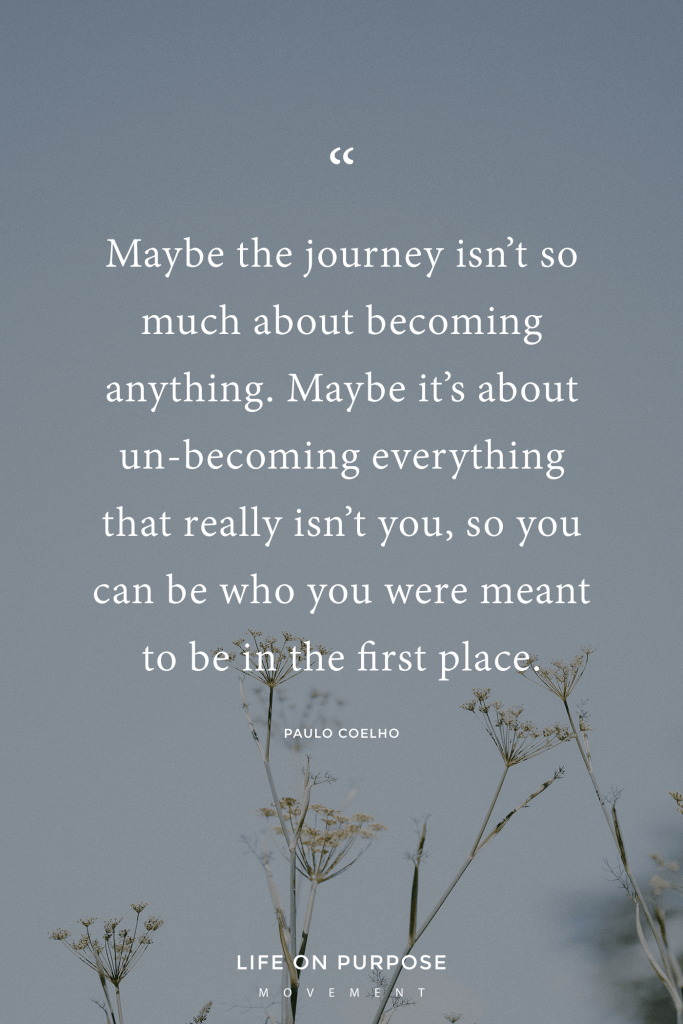
3. Give yourself time and care while you process what you’ve learned
If I can, I try not to schedule anything right after a session; I try to give myself some buffer time. I love to take a walk after therapy just to let my thoughts run their course—or take a bit of time to write.
It goes without saying that therapy is DEEP work! You can leave a session feeling incredibly sad or incredibly hopeful. Both are normal! Which is why I think it’s so important to back up your inner work with self-care. Give yourself time and care while you process what you’ve learned.
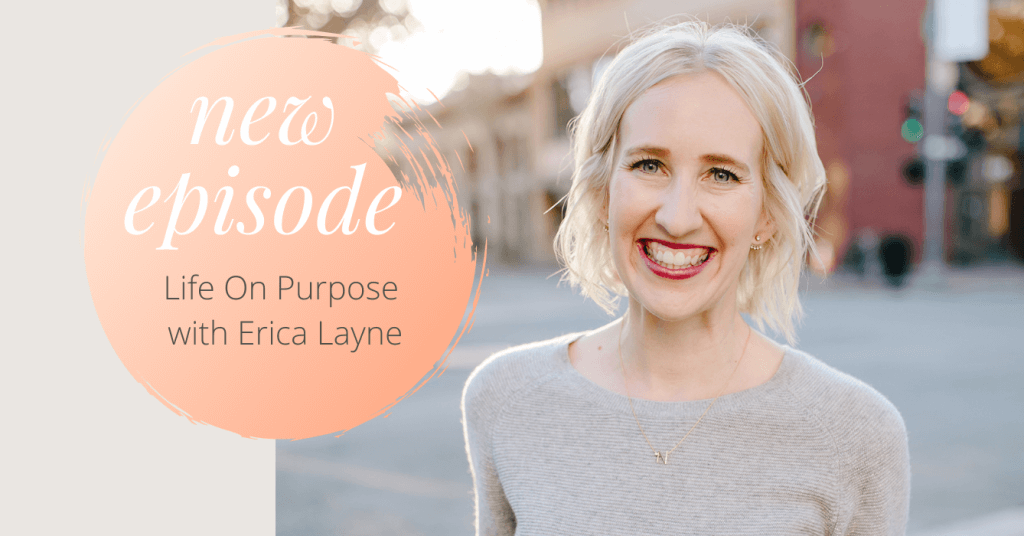
More from Episode 6 of Life On Purpose with Erica Layne
Here’s what else you can hear on the latest episode of the podcast!
- Off Ramp: A segment where I’ll encourage you to stop measuring your pain or hardship against anyone else’s. Today’s thought is one you can use when you’re running low on motivation.
- Decluttering Tip: What if you got rid of your duplicates? Could you live with one set of towels per bathroom or one set of sheets per bed? (Hint: You totally could!)
- Looking for an incredible gift for the holiday season? The Authenticity Calendar is a page-a-day calendar with 365 quotes—hand selected and designed with love by yours truly—to inspire you to live with more purpose, authenticity and JOY every day. I hope you’ll take a look!
Listen to the full episode in the audio player below or in your favorite podcasts app, linked here!
Apple Podcasts | Google Podcasts | Spotify | Overcast | Stitcher




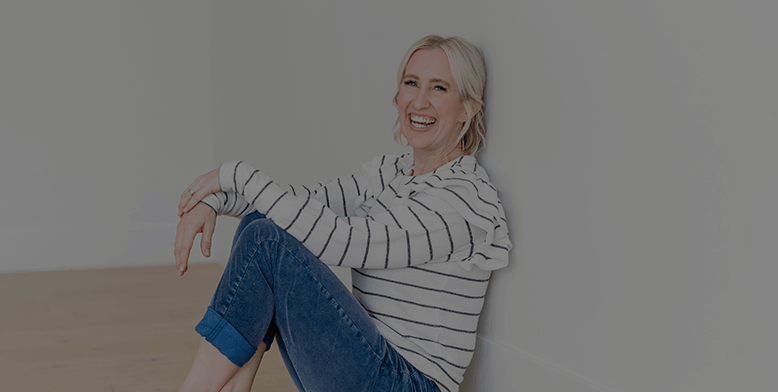
This podcast is perfect timing for me . Sadly my darling husband passed away 6 weeks ago & I really need help coping with overwhelming grief . I will be seeing a therapist as soon as possible & these points I know will be help me greatly . Many thanks !
Oh, Maria! I’m so sorry! I know it’s what everyone says, but I’m so sincerely sorry for your loss. And it’s still so recent. I imagine that a therapist would be a huge help in healthily processing your immense grief. I’ll keep you in my thoughts and prayers!